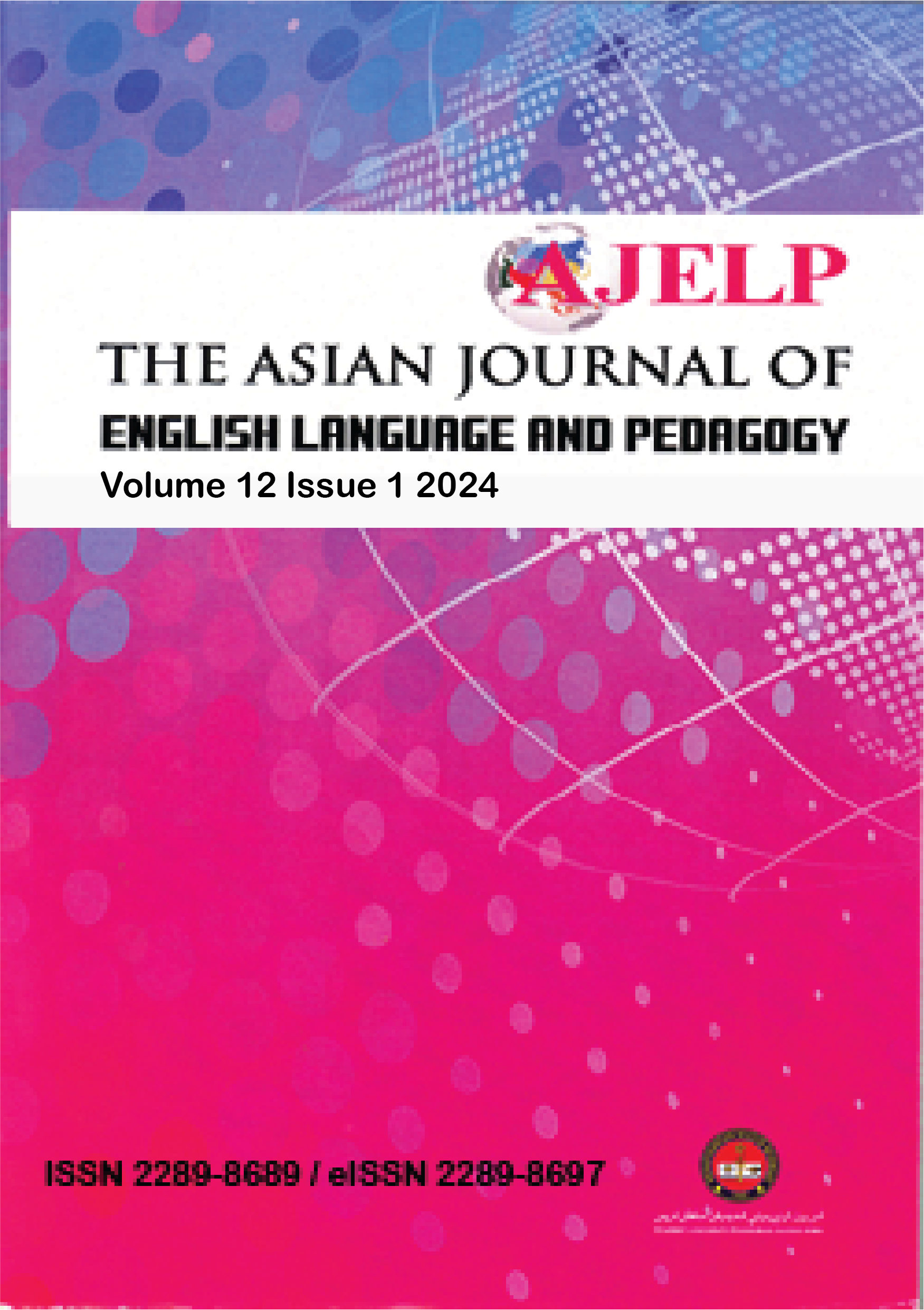Reading serving for major learning: a teaching experiment on combination between College English reading with students’ major learning
DOI:
https://doi.org/10.37134/ajelp.vol12.1.10.2024Keywords:
English reading, integration, learner engagement, major-related learning, medical studentsAbstract
This study investigates the integration of College English reading with students’ major-related learning in the context of a College English course in China. The research was conducted with a second-year College English class consisting of 32 medical students. Data were collected throughout the experiment, including students' self-reports. The findings indicate that incorporating reading materials related to students' majors in the College English course expanded their reading scope and fostered collaborative learning through group-based literature reading and essay writing. Through this integration, students produced essays in English related to their major or personal interests in teamwork. The integration resulted in positive outcomes, such as increased student engagement, improved learning experiences, and heightened motivation. Additionally, a commonly reported challenge was slow reading speed, primarily due to unfamiliar genres and the presence of numerous professional terms or academic vocabulary.
Downloads
References
Baer, R. (2019). Assessment of mindfulness by self-report. Current Opinion in Psychology, 28, 42–48. https://doi.org/10.1016/j.copsyc.2018.10.015
Coyle, D. (2013). Listening to learners: An investigation into ‘successful learning’ across CLIL contexts. International Journal of Bilingual Education and Bilingualism, 16, 244266.
Coyle, D., Hood, P., & Marsh, D. (2010). CLIL: Content and Language Integrated Learning. Cambridge University Press.
Dudley-Evans, T., & St John, M. J. (1998). Developments in English for Specific Purposes: A Multi-disciplinary Approach. Cambridge University Press.
Cai, J. G. (2016). A Study of the Efficiency of College English Teaching from the Perspective of the Economics of Language. Fudan Education Forum 2016, 1(14), 86–92.
Cai, J. G. (2017). Review of Chinese Tertiary English Education: Failure and Lessons. Journal of Northeast Normal University (Philosophy and Social Sciences), 1-7.
Cai, J. G. (2018). Teaching English as a Second Language in the China EFL Context—An Exploration of a Paradigm Shift. Journal of Northeast Normal University (Philosophy and Social Sciences), 295, 12–17.
Dudley-Evans, T., & St. John, M. J. (1998). Developments in English for Specific Purposes: A multi-disciplinary approach. Cambridge University Press.
Ellis, R. (2003). Task-based language learning and teaching. Oxford University Press.
Foreign Language Teaching Advisory Committee of the Ministry of Education. (2020). The College English Teaching Guide. Beijing: Higher Education Press.
Grabe, W. (2009). Reading in a second language: Moving from theory to practice. Ernst Klett Sprachen.
Grabe, W., & Stoller, F. L. (2020). Teaching and Researching Reading. Routledge.
Graham, C. R. (2013). Emerging practice and research in blended learning. In Handbook of distance education (pp. 351-368). Routledge.
Hutchinson, T., & Waters, A. (1987). English for Specific Purposes: A learning-centred approach. Cambridge University Press.
Idris, H., Rahman, M. S., & Masrudin, M. (2019). The effect of blended learning to the students’ achievement in English for specific purposes (ESP) class at Islamic education study program In Indonesia.
Kalugina, O. A., Vasbieva, D. G., Shaidullina, A. R., Sokolova, N. L., & Grudtsina, L. Y. (2018). ESP blended learning based on the use of smart coursebook. XLinguae, 11(2), 445-454.
Kirovska-Simjanoska, D., & Čubrović, B. (2020). Teaching ESP in the digital world–Developing a blended learning environment for computer science students. In Belgrade English language and literature studies BELLS90 Proceedings, 1, 423-438.
Lasagabaster, D., & Doiz, A. (2016). CLIL students' perceptions of their language learning process: delving into self-perceived improvement and instructional preferences. Language awareness, 25(1-2), 110-126.
Scharle, Á., & Szabó, A. (2000). Learner autonomy: A guide to developing learner responsibility. Cambridge University Press.
Wang, G. H., & Wang, S.D. (2013). Roles of metalinguistic awareness and academic extensive reading in the development of EFL/ESL academic writing skills. Journal of Arts and Humanities, 2(9), 47–55.
Downloads
Published
How to Cite
Issue
Section
License
Copyright (c) 2024 Qi Tianxiu

This work is licensed under a Creative Commons Attribution-NonCommercial-ShareAlike 4.0 International License.





